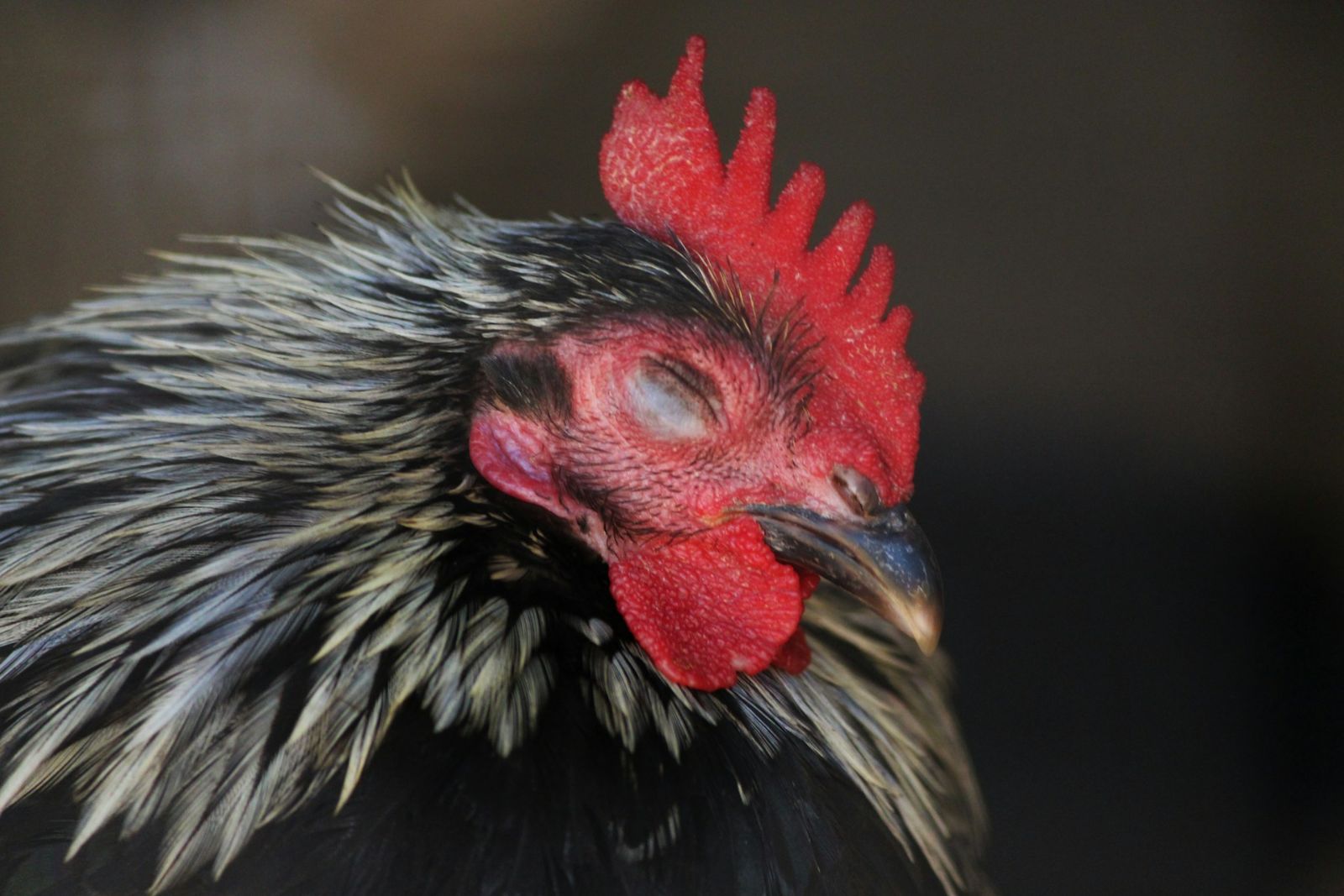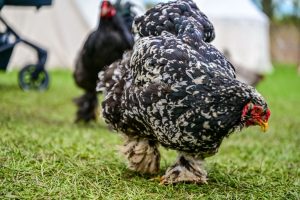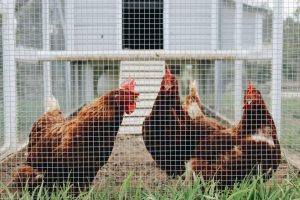Getting a good night’s sleep isn’t just important for humans – it’s essential for chickens too. Understanding how your chickens sleep helps you provide the best care and ensure they stay healthy and happy. Let’s explore the fascinating world of chicken sleep patterns and learn how to create the perfect environment for your flock’s restful nights.
Natural Sleep Patterns
Chickens are light-sensitive creatures with sleep patterns quite different from mammals. As daylight fades, their bodies naturally prepare for rest. Unlike humans who sleep in long stretches, chickens alternate between periods of light and deep sleep throughout the night, typically getting about 8 hours of rest in total.
During sleep, chickens can exhibit some peculiar behaviors that might surprise new keepers. These birds often sleep with one eye open and one hemisphere of their brain awake – a survival adaptation that helps them stay alert to potential predators. This unique ability, called unihemispheric sleep, allows them to rest while maintaining some awareness of their surroundings.
Choosing Sleep Spots
When it comes to bedtime, chickens have strong natural instincts. They prefer to roost (sleep while perched) as high as possible in their coop. This behavior stems from their wild ancestors, who would sleep in trees to stay safe from ground predators. That’s why providing appropriate roosts in the coop is essential for their well-being.
The right roost setup makes a significant difference in sleep quality. Chickens don’t wrap their feet around perches like other birds – instead, they prefer to sleep flat-footed on a stable surface. A roost bar about 5-7.5 cm (2-3 inches) wide provides the perfect platform for their sleeping comfort.
Creating the Perfect Sleep Environment in the Coop
Your chickens need a properly designed sleeping space to rest comfortably and safely. The coop should be draft-free while maintaining good ventilation. Poor air quality can disturb their sleep and potentially lead to respiratory issues. Position roosts away from any windows or gaps where drafts might occur, but ensure the coop has adequate ventilation near the roof.
Height matters when it comes to roost placement. Install roosts about 60-90 cm (2-3 feet) off the ground, with enough space above for chickens to feel secure. Keep in mind that not all chicken breeds can easily reach high roosts – many heavier and larger breeds aren’t able to fly, and need lower roosting bars to reach higher ones.
It’s perfectly natural for chickens to sleep close together, especially in cold weather. This helps them maintain body heat and feels secure to them. Don’t worry if your chickens seem to sleep in odd positions – they might rest with their necks stretched out or tucked tightly against their bodies.
Understanding Sleep Disruptions
Changes in sleep patterns can signal health issues or environmental problems that need attention. Healthy chickens typically head to roost at dusk and wake at dawn. If you notice chickens reluctant to roost or sleeping in unusual spots, this might indicate pest problems, illness, or stress.
During shorter winter days, chickens will naturally sleep longer. Some keepers choose to extend daylight hours with artificial lighting to maintain egg production, but this practice requires careful consideration of the birds’ need for adequate rest. If using supplemental light, ensure chickens still get at least 8 hours of darkness for proper sleep.
Chickens can take short naps during the day, particularly during hot afternoons. This behavior is normal and shouldn’t cause concern unless it’s excessive or accompanied by other unusual symptoms.
Supporting Healthy Sleep Habits
Creating a consistent routine helps your chickens maintain healthy sleep patterns. If you’re opening the coop manually, let them out at roughly the same time each morning, and ensure they have access to the coop well before dusk so they can settle in naturally for the night.
Regular coop maintenance contributes to better sleep quality. Keep roosts clean and check them periodically for signs of wear or damage. Remove any splinters or rough spots that might make perching uncomfortable. During coop cleaning, pay special attention to the roosting area, as this is where chickens spend their longest stretches of time.
Well-rested chickens are more likely to maintain good egg production and show those delightful, active behaviors that make keeping chickens such a rewarding experience.





0 Comments